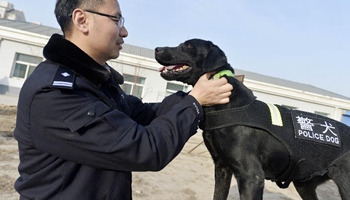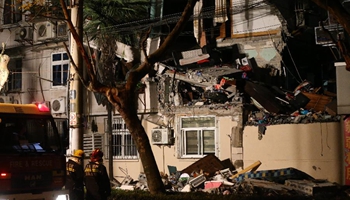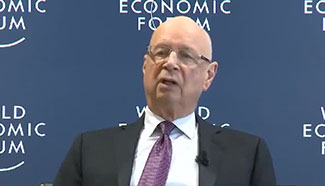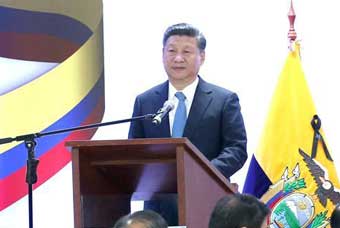BEIJING, Jan. 10 (Xinhua) -- Significant findings have been made during excavation work by a joint team of archaeologists from China and Uzbekistan, an archaeology forum staged by the Chinese Academy of Social Sciences (CASS) announced Tuesday.
The work was carried out at the Mingtepa ruins in the southeast of the Fergana Valley in Uzbekistan.
Five excavations since 2012 have broadened the ruins' size from 500 by 800 meters to 2,100 by 1,300 meters, showing that just over 2,000 years ago Mingtepa was not simply a provisional garrison fort for nomads, but a fully functional castle, the largest in the Fergana Valley.
The team also unearthed the ruins of a handicraft workshop, the west gate of the inner city and a graveyard. The relics were believed to date back about 2,155 years, according to a report from the Institute of Archaeology of the CASS.
The institute started cooperation with counterparts in Uzbekistan in 2012.
The excavations adopted a unique Chinese tool known as a "Luoyang shovel." Precision measurement, computer mapping and data analysis also played significant roles in the work.
"Uzbekistan archaeologists are familiar with excavation where ruins have signs on the ground surface. We Chinese archaeologists apply our special strength in digging underground. Both parties are quite satisfied with the results," said Zhu Yanshi, director of the institute's Research Department of Han to Tang Archaeology.
Mingtepa is located near Andigon in southeast Uzbekistan. The area once belonged to Dayuan state, an ancient state known for the precious Ferghana horse breed.
Wang Wei, director of the institute, said the excavation project had shed new light on research in Dayuan, and it marked the beginning of China's archaeology going abroad.
Zhu said the excavation and study of the Mingtepa ruins would be a long-term effort, and the next step would be to establish an archaeological chronology of Mingtepa, based on findings from the excavations and dedicated surveys.
China has several archaeological teams engaged in joint projects in countries on the ancient silk road, including Vietnam, Cambodia, Laos, Mongolia, Bangladesh, Pakistan and Iran.














